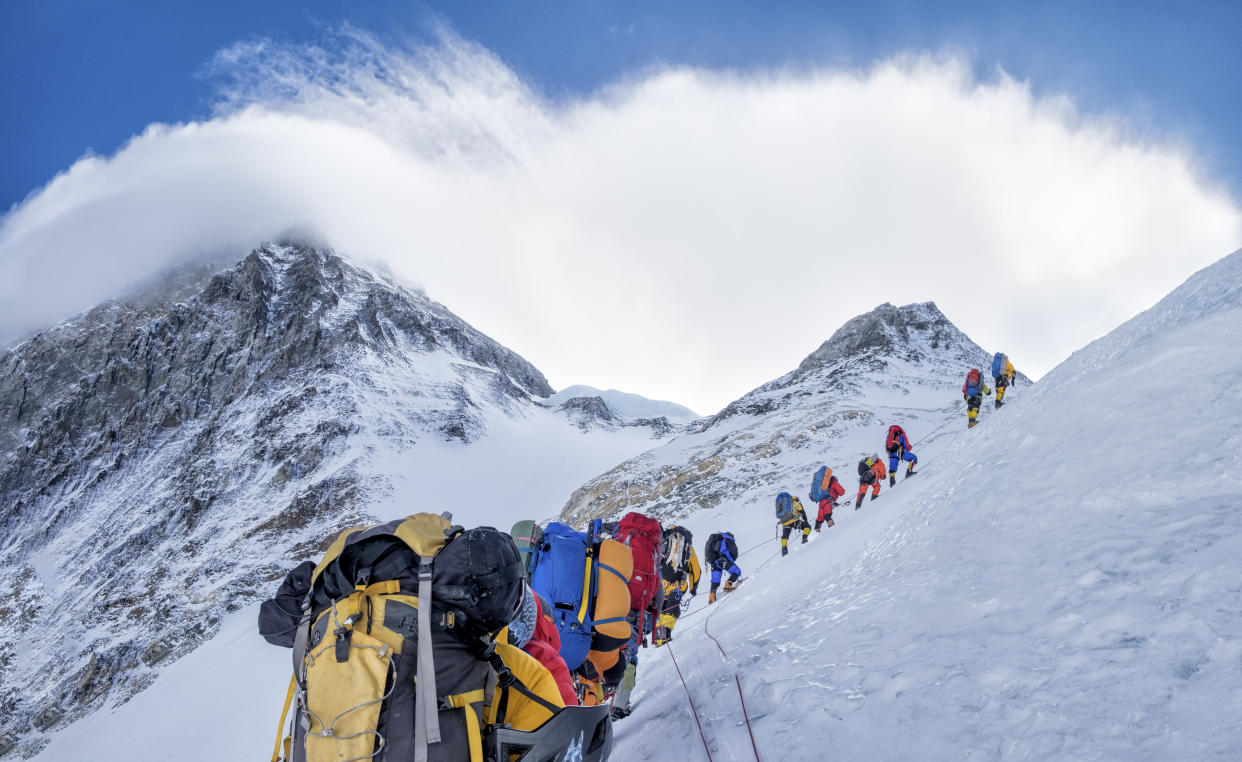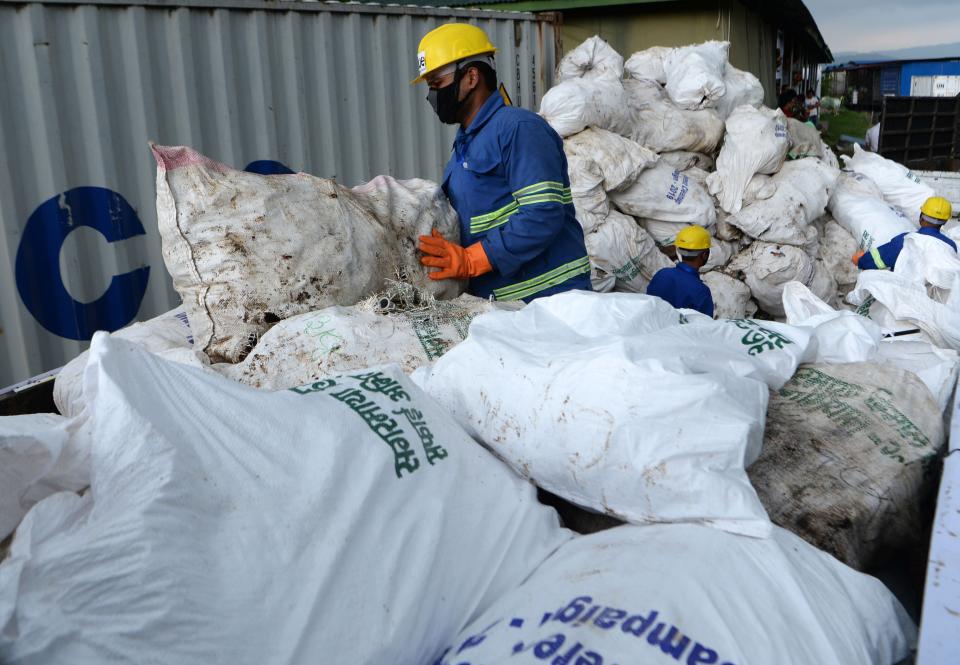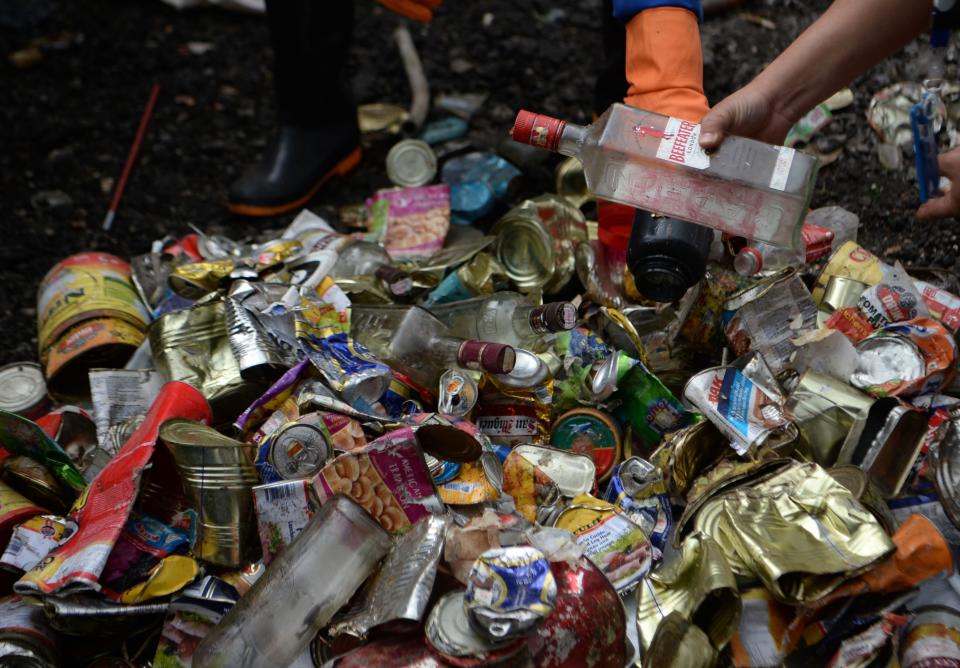Clean-up on Mount Everest removes 24,000lbs of rubbish and four dead bodies

A clean-up expedition on Mount Everest has removed 24,200lb of rubbish and four dead bodies from the world’s highest mountain, according to Nepalese officials.
The clean-up initiative was launched in April and a team of 12 Sherpa climbers spent a month collecting food wrappings, cans, bottles and empty oxygen cylinders.
Some of the waste from the mountain, which rises 8,848 metres above sea level, was flown to Kathmandu and handed to recyclers in a ceremony to officially conclude the cleaning campaign.

Dandu Raj Ghimire, the Director-General of Nepal's Tourism Department, told Efe news: “Along with the rubbish, they also collected four dead bodies from the high camps of Mount Everest that were brought to Kathmandu last week.
"There are big environmental concerns and criticism from the international community that Nepal has not shown seriousness to maintain the beauty of the iconic peak.”
Officials called it a successful mission but said more rubbish still needs to be collected. Some is covered by snow and is only exposed when temperatures rise.
An army helicopter was also used in the ambitious mission.

Since 2011 regular efforts have been made to recover rubbish from the mountain and a waste management system has been introduced.
Mr Ghimire said the four bodies were exposed by melting snow and were carried to base camp and then flown to a hospital in Kathmandu for identification.
Climbers struggling to make it down the mountain alive are sometimes unable to carry out the bodies of team-mates who have died.
More than 300 climbers have died on Everest since it was first conquered in 1953. It is unclear how many bodies are still on the mountain, and officials said they have no records.
Read More on Yahoo News
Climber who warned of Everest overcrowding perishes during descent
Facebook post of unconscious Australian climber who failed to reach summit of Everest discovered
Hundreds of climbers and their guides and porters spend weeks on Everest every spring, the best climbing season.
A tent city rises at the base camp at 17,400ft for three months between March and May.
The world’s tallest peak was thought to be unconquerable until Sir Edmund Hillary and his Nepalese Sherpa mountaineer Tenzing Norgay reached Everest’s summit.
So far this year, a record number of permits were issued by the Nepalese government, which including the sherpas, led to there being more than 820 people trying to reach the summit.
Eleven people died on the mountain, which has sparked concern that better regulation is needed.

 Yahoo News
Yahoo News 
